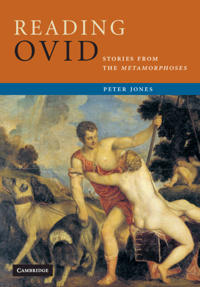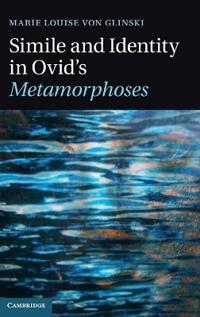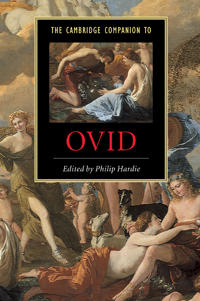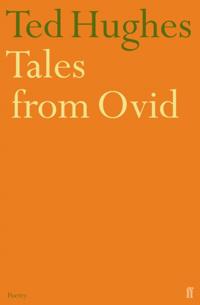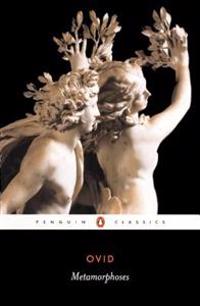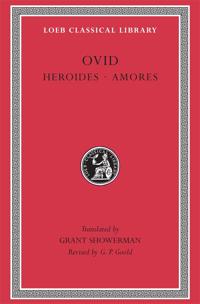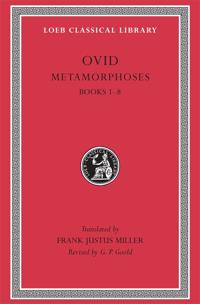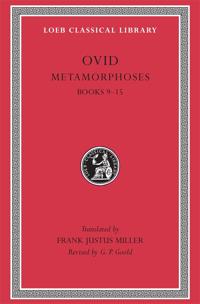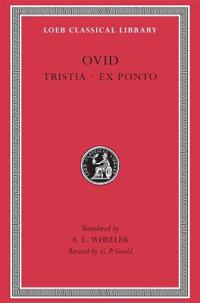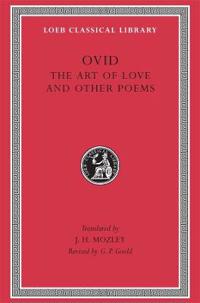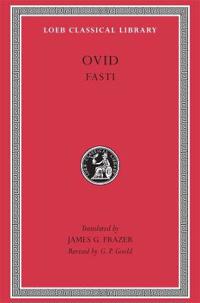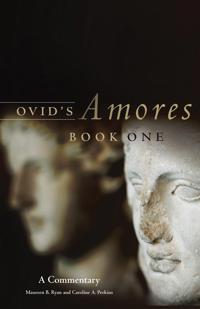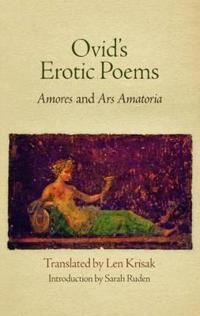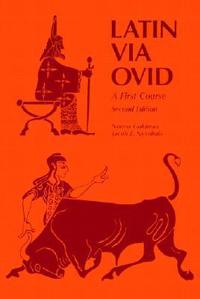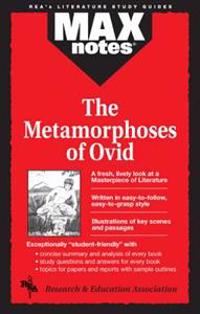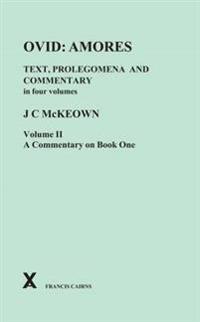Reading Ovid (Pocket)
avPeter Jones
ISBN: 9780521613323 - UTGIVEN: 2007-03Presents a selection of stories from Ovid's Metamorphoses, the most famous and influential collection of Greek and Roman myths in the world. It includes well-known stories like those of Daedalus and Icarus, Pygmalion, Narcissus and King Midas. The book is designed for those who have completed an int[...]
Simile and Identity in Ovid's Metamorphoses (Inbunden)
avMarie Louise Von Glinski
ISBN: 9780521760966 - UTGIVEN: 2012-02Nulli sua forma manebat. The world of Ovid's Metamorphoses is marked by constant flux in which nothing keeps its original form. This book argues that Ovid uses the epic simile to capture states of unresolved identity - in the transition between human, animal and divine identity, as well as in the po[...]
The Cambridge Companion to Ovid (Häftad)
ISBN: 9780521775281 - UTGIVEN: 2002-05Ovid was one of the greatest writers of classical antiquity, and arguably the single most influential ancient poet for post-classical literature and culture. In this Cambridge Companion, chapters by leading authorities from Europe and North America discuss the backgrounds and contexts for Ovid, the [...]
Tales from Ovid
ISBN: 9780571258895 - UTGIVEN: 2009-12When Michael Hofmann and James Lasdun's ground-breaking anthology After Ovid (also Faber) was published in 1995, Hughes's three contributions to the collective effort were nominated by most critics as outstanding. He had shown that rare translator's gift for providing not just an accurate account of[...]
Ovid Heroides and Amores
ISBN: 9780674990456 - UTGIVEN: 1977-06In Heroides, Ovid (43 BCE 17CE) allows legendary women to narrate their memories and express their emotions in verse letters to absent husbands and lovers. Ovid s Amores are three books of elegies ostensibly about the poet s love affair with his mistress Corinna.[...]
Metamorphoses (Inbunden)
avOvid
ISBN: 9780674990463 - UTGIVEN: 199802Ovid (Publius Ovidius Naso, 43 BCE-17 CE), born at Sulmo, studied rhetoric and law at Rome. Later he did considerable public service there, and otherwise devoted himself to poetry and to society. Famous at first, he offended the emperor Augustus by his "Ars Amatoria, " and was banished because of th[...]
Metamorphoses (Inbunden)
avOvid
ISBN: 9780674990470 - UTGIVEN: 199801Ovid (Publius Ovidius Naso, 43 BCE-17 CE), born at Sulmo, studied rhetoric and law at Rome. Later he did considerable public service there, and otherwise devoted himself to poetry and to society. Famous at first, he offended the emperor Augustus by his "Ars Amatoria, " and was banished because of th[...]
Ovid VI
ISBN: 9780674991675 - UTGIVEN: 1968-12In the melancholy elegies of the Tristia and the Ex Ponto, Ovid (43 BCE 17 CE) writes as from exile in Tomis on the Black sea, appealing to such people as his wife and the emperor.[...]
Art of Love (Inbunden)
avOvid
ISBN: 9780674992559 - UTGIVEN: 197906Ovid (Publius Ovidius Naso, 43 BCE-17 CE), born at Sulmo, studied rhetoric and law at Rome. Later he did considerable public service there, and otherwise devoted himself to poetry and to society. Famous at first, he offended the emperor Augustus by his "Ars Amatoria, and was banished because of this[...]
Fasti (Inbunden)
avOvid
ISBN: 9780674992795 - UTGIVEN: 193112Ovid's Fasti, begun in or soon after AD I, was to have celebrated the calendar and associated legends of the Roman year, but probably had reached no further than June before his exile in AD 8. Book IV, the book of April, honours the festivals of Venus, Cybele, Ceres and their cult, as well as the tr[...]
Playing Gods: Ovid's Metamorphoses and the Politics of Fiction (Övrig)
avAndrew Feldherr
ISBN: 9780691138145 - UTGIVEN: 2010-08-16This book offers a novel interpretation of politics and identity in Ovid's epic poem of transformations, "The Metamorphoses". Reexamining the emphatically fictional character of the poem, "Playing Gods" argues that Ovid uses the problem of fiction in the text to redefine the power of poetry in Augus[...]
Prescribing Ovid: The Latin Works and Networks of the Enlightened Dr Heerkens (Inbunden)
avYasmin Haskell
ISBN: 9780715637234 - UTGIVEN: 2013-05-23Explores the intellectual and identity politics of Latin language use in the Enlightenment 'Republic of Letters' via the figure of Gerard Nicolaas Heerkens (1728-1801), a Dutch physician and Latin poet, disenchanted disciple of Voltaire, and lifelong devotee of Ovid.[...]
Ovid's Poetry of Exile (Häftad)
ISBN: 9780801839160 - UTGIVEN: 1989-10Provides a modern translation of the poems Ovid sent back to Rome in hopes of convincing the emperor of ending his exile in Tomis[...]
Ovid's Amores, Book One: A Commentary (Häftad)
avMaureen B. Ryan, Caroline A. Perkins
ISBN: 9780806141442 - UTGIVEN: 2011-01Students of Latin have long enjoyed the poetry of Ovid, but his love poems, aptly titled" Amores, " have proved more difficult to introduce into the classroom. Curricular changes and increased appreciation of sophisticated love poetry are finally making room for the" Amores." This edition of the fir[...]
Ovid's Erotic Poems
ISBN: 9780812246254 - UTGIVEN: 2014-09The most sophisticated and daring poetic ironist of the early Roman Empire, Publius Ovidius Naso, is perhaps best known for his oft-imitated Metamorphoses. But the Roman poet also wrote lively and lewd verse on the subjects of love, sex, marriage, and adultery-a playful parody of the earnest erotic [...]
Ovid (Pocket)
avD. E. Hill
ISBN: 9780856686467 - UTGIVEN: 1999-12Ovid's Metamorphosis is a work which displays his mature genius and is a treasure house of mythology. This volume continues in the same style as books I-IV, V-VIII; with a line by line translation and notes which trace Ovid's sources and his influence on literature and art. It has, however, been des[...]
Ovid (Pocket)
avCaroline Perkins, Denise Davis-Henry, Caroline Perkins
ISBN: 9780865166042 - UTGIVEN: 2008-03"Metamorphoses" of Ovid (Häftad)
ISBN: 9780878910274 - UTGIVEN: 1996-06REA's MAXnotes for Ovid's" The Metamorphoses of Ovid" MAXnotes offer a fresh look at masterpieces of literature, presented in a lively and interesting fashion. Written by literary experts who currently teach the subject, MAXnotes will enhance your understanding and enjoyment of the work. MAXnotes ar[...]
Ovid Amores
ISBN: 9780905205717 - UTGIVEN: 1989-12Even in its incomplete form (the final volume is still in preparation), the Commentary on the Amores of Ovid has become a scholarly standard. The introductions to each elegy are succinct, readable and original, and take careful account of relevant modern discussions. The commentary is full of meticu[...]

